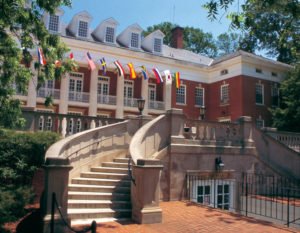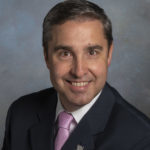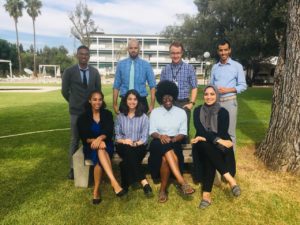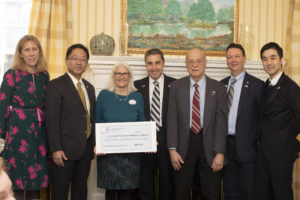Sarah Moran began studying abroad even before she could read words on a map. When she was 5, her family participated in an exchange program in England through her father’s company.
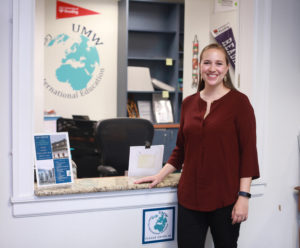
Sarah Moran ’10, found her way back to UMW in 2017, when she became the study abroad coordinator for the Center for International Education. Photo by Karen Pearlman.
Over the years, she’s added nearly 20 stamps to her passport, hiking and rafting in Slovenia, quilting in Cuba and biking a tiny island off the Australian coast. Her wanderlust also led her to the University of Mary Washington.
“I knew when selecting a college that I wanted to study abroad, so Mary Washington was a great fit,” said Moran, a 2010 alumna who spent a semester in Ireland while completing her bachelor’s degree in business. Seven years later, she returned to UMW, this time as study abroad coordinator for the Center for International Education (CIE).
One-third of each graduating class – about 300 students – study abroad during their time at UMW, Moran said, so her office is always busy helping them find their way through the world. CIE also helps international students navigate life on campus and in the United States.
In her role, Moran, who also earned an MBA from UMW’s College of Business, organizes faculty-led programs, juggling behind-the-scenes work like logistics, marketing and finances, so instructors can focus on their classes and students. She also helps coordinate the CIE Peer Advisor program, alumni activities and social media outreach. Since COVID-19 hit in March, she’s been doing all of this from home while caring for her 15-month-old daughter.
“The pandemic may have thrown a wrench in everyone’s plans,” Moran said, but CIE is encouraging students to explore options so they’re ready to travel when the time comes.
“Leaving Mary Washington, even for a little while, is hard,” she said, “but the experiences you will find abroad, and what you’ll discover about yourself, are worth it.”
International Education Week 2020, Nov. 16 to 20, celebrates cross-cultural learning. Visit the CIE website or call (540) 654-1434 for more information about faculty-led trips, exchange partnerships and other UMW-approved experiences outside the United States.
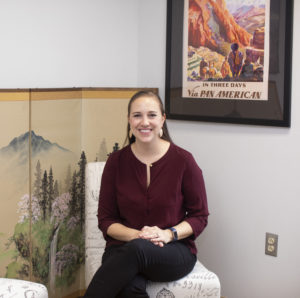
“I knew when selecting a college that I wanted to study abroad, so Mary Washington was a great fit,” said Moran, who now helps current UMW students plan their travels and professors coordinate faculty-led trips. Photo by Karen Pearlman.
Q: How can students prepare now for future study abroad experiences?
A: We hosted “Travel Tuesday” Q&A’s earlier this fall semester, which were a great way for prospective students to ask questions of study abroad alums and program staff. CIE is also attending virtual admissions events and hosted a panel during Family Weekend.
Q: What’s the most rewarding part of your job?
A: Helping students go abroad and have a fulfilling experience when they didn’t think it was a possibility.
Q: The most challenging?
A: When students don’t take responsibility for their own experience and are disappointed that it didn’t go the way they expected.
Q: How do you spend your free time?
A: I like to read and listen to audiobooks, go on long walks and watch Netflix. I also enjoy puzzles and coloring.
Q: What would people be surprised to learn about you?
A: Growing up I wanted to be a pastry chef, and I was a Junior Olympic fencer in high school.
Q: What’s next on your travel bucket list?
A: My next big trip is Austria, Hungary and the Czech Republic.
Q: What’s your motto?
A: These days, I often repeat the phrase “strength, peace and patience.” I also like “Happiness is a journey, not the destination.”
